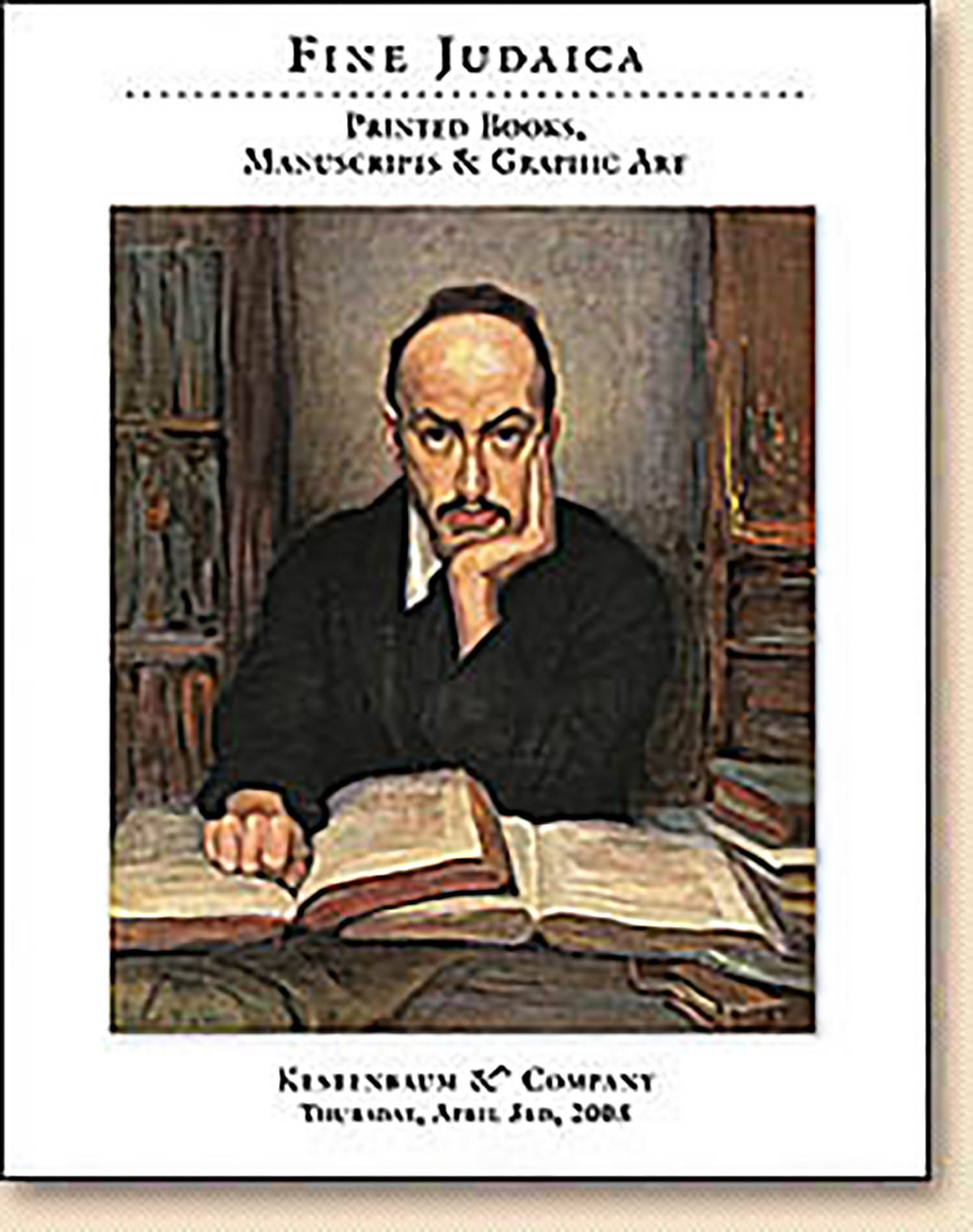CHABAD). Sepher Ta’amei Mitzvoth. WITH: Collected discourses by various Rebbes of the Lubavitch Dynasty, especially Menachem Mendel (The Tzemach Tzedek, 1789-1866)

AUCTION 39 |
Thursday, April 03rd,
2008 at 1:00
Fine Judaica: Printed Books, Manuscripts, Autograph Letters & Graphic Art
Lot 324
(CHASSIDISM,.
CHABAD). Sepher Ta’amei Mitzvoth. WITH: Collected discourses by various Rebbes of the Lubavitch Dynasty, especially Menachem Mendel (The Tzemach Tzedek, 1789-1866)
n.p.: n.d.
Est: $5,000 - $7,000
PRICE REALIZED $5,000
An Important Volume of Chabad Chassidic Discourses, Including Several Entirely Unpublished.
Contains a unique discourse (f.20) in the name of the Tzemach Tzedek preached by his oldest son R. Baruch Shalom in the summer of 1868, pertaining to the Torah Portion of Noach. Although Baruch Shalom, was the eldest of the Tzemach Tzedek’s seven sons (all of whom established their own Chassidic dynasties), the mantle of leadership within Lubavitch was passed to the youngest son, R. Shmuel.
As a child R. Baruch Shalom fled with his grandfather, R. Shne’or Zalman of Liadi, from Napoleon’s advance into Russia and was present soon after at his Grandfather’s death-bed. Apparantly, the experience so scarred him with melancholia he became a recluse. However, as this manuscript makes clear, he did in fact speak in public. The last Lubavitcher Rebbe, was a direct descendent of R. Baruch Shalom. Followers have suggested the abdication of leadership by the presumptive heir in 1866, left place for his 20th century descendent to popularise Chabad Chassiduth to outstanding proportions.
Similarly unpublished, is a discourse examining the divergencies between the Chassidic and Mithnagdic philosophies toward serving God, causing “a separation of the hearts...with hate for no reason.” The detailed analysis has a most charitable overture, for fundamentally, “acceptance of the yoke of the Heavenly Kingdom” is paramount, no matter the approach.
The final section (ff.291-302) concerns halachic responsa by the Tzemach Tzedek concerning issues pertaining to women - mostly published, though with variances. It is unusual to find both Chassidic discourses and legal texts in a single manuscript
